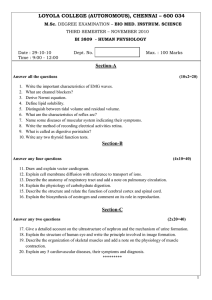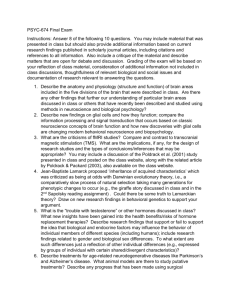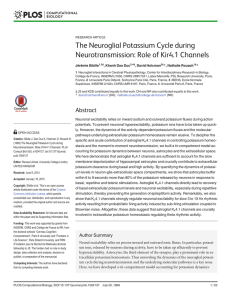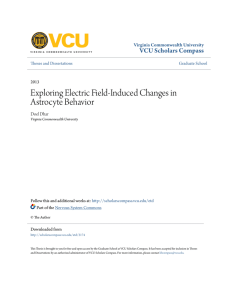Juan Carlos Sáez, Ph.D. Department of Cell Physiology & Molecular Biophysics
advertisement
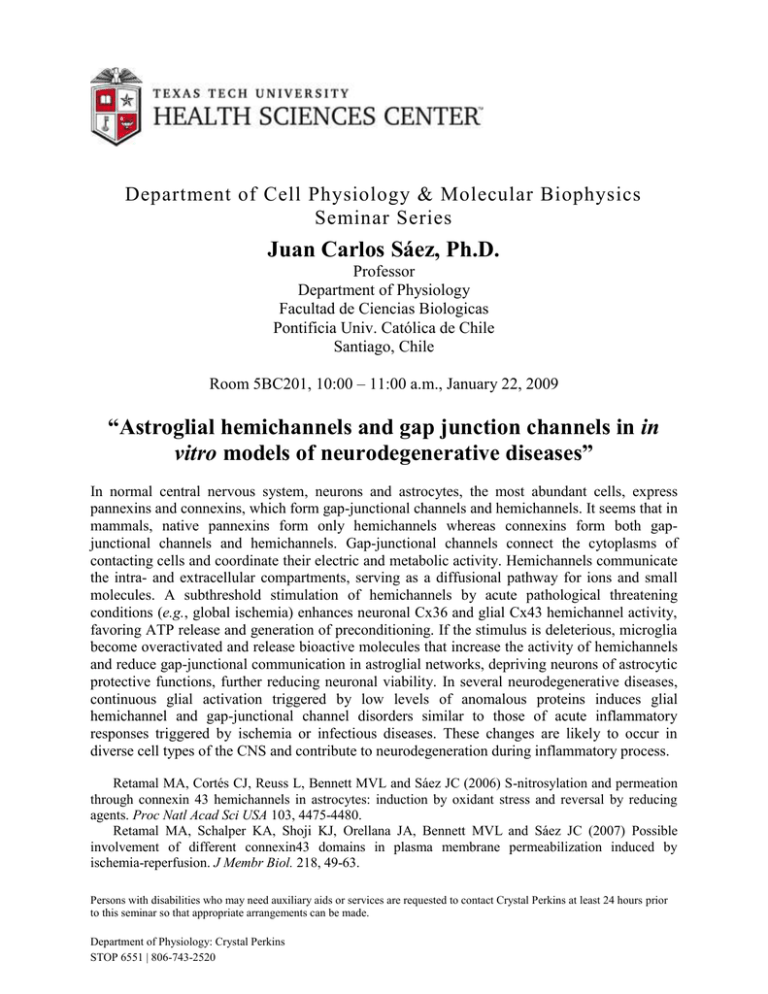
Department of Cell Physiology & Molecular Biophysics Seminar Series Juan Carlos Sáez, Ph.D. Professor Department of Physiology Facultad de Ciencias Biologicas Pontificia Univ. Católica de Chile Santiago, Chile Room 5BC201, 10:00 – 11:00 a.m., January 22, 2009 “Astroglial hemichannels and gap junction channels in in vitro models of neurodegenerative diseases” In normal central nervous system, neurons and astrocytes, the most abundant cells, express pannexins and connexins, which form gap-junctional channels and hemichannels. It seems that in mammals, native pannexins form only hemichannels whereas connexins form both gapjunctional channels and hemichannels. Gap-junctional channels connect the cytoplasms of contacting cells and coordinate their electric and metabolic activity. Hemichannels communicate the intra- and extracellular compartments, serving as a diffusional pathway for ions and small molecules. A subthreshold stimulation of hemichannels by acute pathological threatening conditions (e.g., global ischemia) enhances neuronal Cx36 and glial Cx43 hemichannel activity, favoring ATP release and generation of preconditioning. If the stimulus is deleterious, microglia become overactivated and release bioactive molecules that increase the activity of hemichannels and reduce gap-junctional communication in astroglial networks, depriving neurons of astrocytic protective functions, further reducing neuronal viability. In several neurodegenerative diseases, continuous glial activation triggered by low levels of anomalous proteins induces glial hemichannel and gap-junctional channel disorders similar to those of acute inflammatory responses triggered by ischemia or infectious diseases. These changes are likely to occur in diverse cell types of the CNS and contribute to neurodegeneration during inflammatory process. Retamal MA, Cortés CJ, Reuss L, Bennett MVL and Sáez JC (2006) S-nitrosylation and permeation through connexin 43 hemichannels in astrocytes: induction by oxidant stress and reversal by reducing agents. Proc Natl Acad Sci USA 103, 4475-4480. Retamal MA, Schalper KA, Shoji KJ, Orellana JA, Bennett MVL and Sáez JC (2007) Possible involvement of different connexin43 domains in plasma membrane permeabilization induced by ischemia-reperfusion. J Membr Biol. 218, 49-63. Persons with disabilities who may need auxiliary aids or services are requested to contact Crystal Perkins at least 24 hours prior to this seminar so that appropriate arrangements can be made. Department of Physiology: Crystal Perkins STOP 6551 | 806-743-2520
